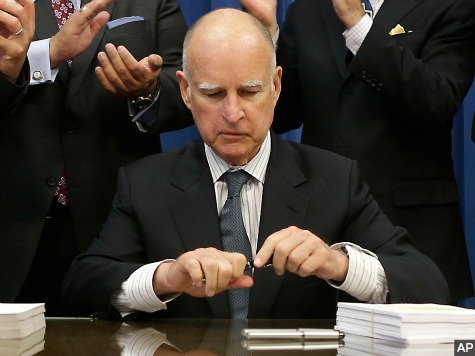When billionaire Obama donor Tom Steyer, the leading opponent of the Keystone XL pipeline, bankrolled California’s Proposition 39 in 2012, voters were told that the new corporate tax reform would bring $1 billion into state coffers by charging out-of-state companies more. Instead, it has only generated about $700 million of the promised windfall–and without creating many of the “green jobs” for which the revenues were earmarked.
The new law taxes corporations based on their percentage of sales in the state of California, rather than allowing them to choose to be taxed based on where they actually perform most of their production. The old law was the result of a budget deal struck between then-Gov. Arnold Schwarzenegger and the state legislature. Steyer, the left, and much of the media argued that the old law created an incentive for businesses to relocate elsewhere.
Both sides in the debate assumed that a $1 billion tax increase was at stake. However, as in many cases of rosy projections of increased revenue from higher taxes, the final number is a disappointment. Analysts are also watching closely to see whether another 2012 ballot measure, Proposition 30, causes rich people to leave the state to avoid a “temporary” tax hike. Higher tax revenues from other sources outweigh that revenue windfall.


COMMENTS
Please let us know if you're having issues with commenting.